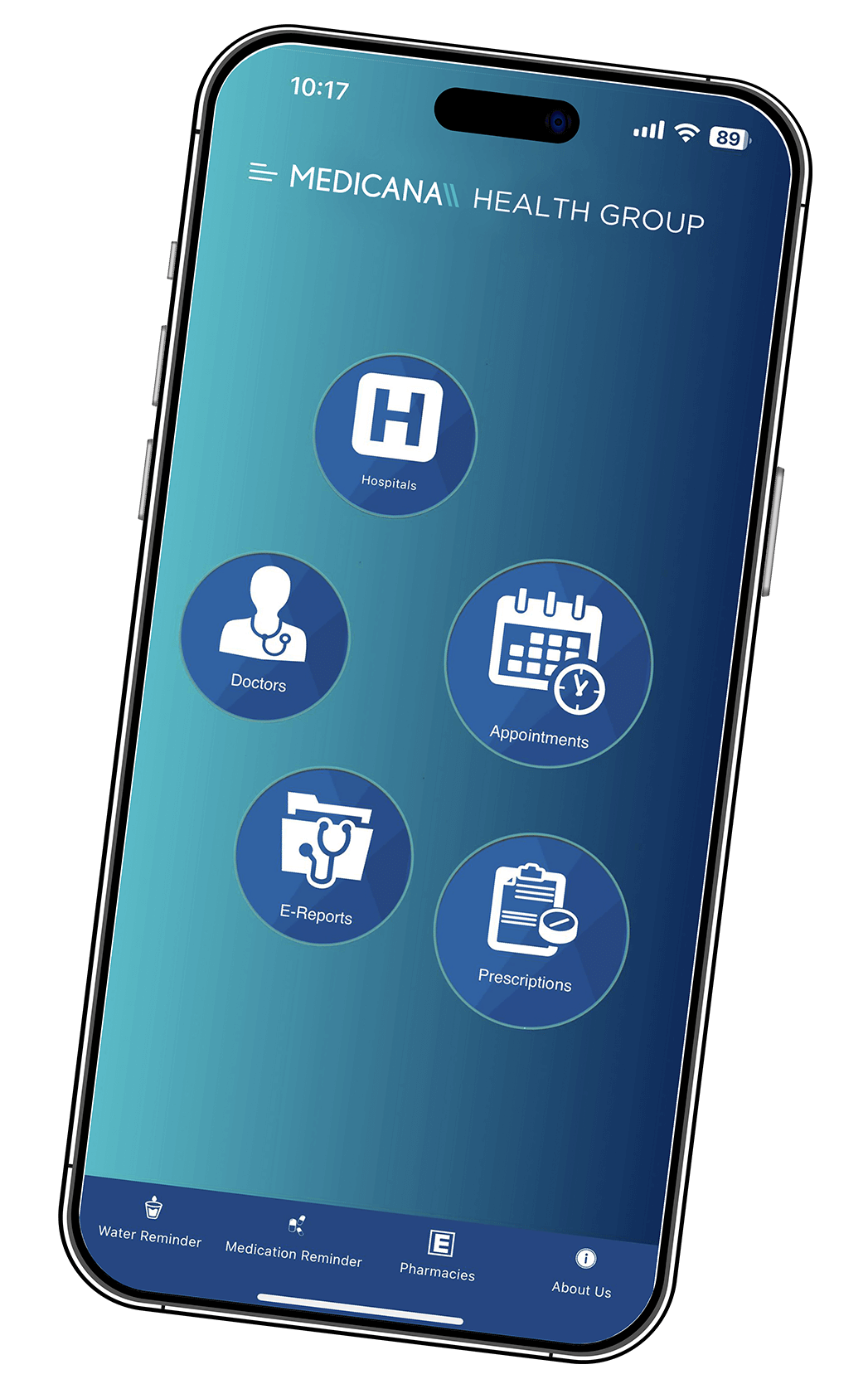Gastric Bypass

Overview
Gastric bypass surgery is primarily based on the direct diversion of food to the last segment of the small intestines without running through the stomach and a significant portion of the small intestines. The highest increase in prevalence around the world characterizes obesity. Even though there are tens of medical etiologies of obesity, the most important ones are abnormal weight gain and a sedentary lifestyle. The lifetime of obese patients is approximately 15 years shorter than other people due to diseases caused by obesity, including but not limited to hypertension, type 2 diabetes, hyperlipidemia, ischemic heart disease, etc. Obesity is a risk factor for cancers such as colorectal cancer, breast cancer, and prostate cancer.
There are various types of gastric bypass surgery: Roux-en-Y gastric bypass and biliopancreatic diversion with a duodenal switch.
These methods aim to bypass foods directly to the duodenum or initial segments of the small intestine with no or minimal contact of foods to the stomach by removing a part of the stomach or without needing to remove a part. Recently, those surgeries can be performed with laparoscopic methods. Compared to sleeve gastrectomy, surgery-related complications are more commonly accompanied by long-term postoperative metabolic problems in all of these methods. More weight loss is achieved and can be maintained for up to 2 years. While they require more vitamin supplements, they bring about problems such as chronic diarrhea, bad breath, etc.
Why is This Procedure Done?
The surgeries that are carried out for weight loss are called bariatric surgery. The common purpose is to reduce excess weight and thus prevent life-threatening complications caused by obesity, such as heart diseases, high blood pressure, sleep apnea, diabetes mellitus, etc.
There are some criteria for gastric bypass surgery to be performed. First, the patient should not optimal or target body weight despite diet and exercise. Just as the case for all health issues, surgery should be considered as the last option. The commonly accepted two criteria are high BMI (>40) or lower BMI (35-39), accompanied by coexisting severe obesity-induced health conditions. Therefore, it will be the most suitable approach for you to ask all your questions of your surgeon before deciding on gastric bypass surgery to manage the postoperative period.
Risks
As is the case for all surgeries, gastric bypass surgery involves some risks. Although all possible measures that modern medicine allows are taken to prevent the occurrence of risks, it is by no means likely to warrant that the risks will be eliminated.
• Bleeding
• Infection
• Thrombosis (blood clot)
• Leakage from anastomosis line
• Damage to other organs
• Transition to open surgery
• Anesthesia-related complications
• Abdominal wall hernia
• Nutritional disorder
• Gastric perforations, ulcers, erosion
• Obstruction of the digestive tract
Your surgeon will explain in detail whether those risks apply to you or, if so, the rate of occurrence.
Preparation
The first phase of preoperative preparation is the same in all Medicana Hospitals. The decision of gastric bypass surgery is made following a series of medical tests and examinations. Your doctor will make a comprehensive assessment to determine whether this surgery helps your complaints or whether you are healthy enough to undergo this surgery. In the preoperative period, all of your prescription and over-the-counter medications, your comorbidities, such as obesity-induced hypertension, diabetes mellitus, and cardiovascular diseases, and your overall health will be assessed. All these assessments will help you be ready for the surgery and minimize the problems encountered during or after the surgery.
• Review of health history
• A detailed physical examination
• Necessary laboratory tests and radiology studies
• Review of health history A detailed physical examination Necessary laboratory tests and radiology studies Assessment by anesthesiologists and other laboratory tests and radiology studies to minimize anesthesia-related complications
After it is verified that the surgery does not pose a risk, you will be asked to quit smoking if you are a smoker and to stop taking certain medications that increase the risk of bleeding. All other prescribed and over-the-counter medications, herbal products, and supplements will also be questioned, and you will be informed to continue or stop taking them.
A preoperative discussion with your surgeon about gastric bypass surgery is critical. All procedure details, potential risks, and healing period are explained. Moreover, it is reasonable to plan discharge, post-discharge accommodation, and travel at this phase to manage the postoperative period better.
Surgery and Early Postoperative Period
Gastric bypass surgery is performed under general anesthesia. Typically, laparoscopy is used for this surgery. However, conventional open surgery can be achieved if you previously had abdominal surgery or for some reasons determined and informed by your surgeon.
Your surgeon makes small incisions. First, your abdominal cavity is inflated by CO2 gas through one of those incisions. Then, a camera is inserted into your abdominal cavity. Other incisions are used for surgical instruments to be inserted into your abdominal cavity.
There are two types of bypass surgery:
Roux-en-Y:
It is the most common type of gastric bypass surgery. At most, 10 % portion of the uppermost segment of the stomach is left, and the remaining part is closed. The new small stomach is connected to the last segment of the small intestines. Thus, 90 % of the stomach and the first segment of the small intestines are bypassed.
Biliopancreatic Diversion with Duodenal Switch:
Since the duodenal switch directly affects the metabolism, it leads to more weight loss. It is a suitable method, especially for people whose BMI is above 55kg/m2. This surgery not only limits food intake but also reduces the absorption of food. It is an efficient therapeutic method for diabetes, hypertension, and high cholesterol caused by excessive weight. It benefits patients who consume foods rich in fat as it decreases fat absorption. Although it is one of the obesity surgery methods that ensure maximum weight loss, it is not a common one due to many preoperative and postoperative complications. Malodorous chronic diarrhea and vitamin and protein deficiencies secondary to decreased fat absorption are common after this surgery.
After you recover from anesthesia and are ready to walk, you will be mobilized by or under the supervision of our healthcare professionals. You will be given painkiller (s) after the surgery to manage the postoperative pain.
Treatments will be started, and measures will be taken to eliminate risks arising from clot formation. You may also need to use antibiotics to prevent a possible infection. You must follow your doctor's instructions after the surgery to protect and support the outcome of the surgery.
You should see your surgeon for scheduled follow-up visits before you are discharged. If you experience warmth and redness in your incision line or have a fever or any symptoms that you think are due to surgery after you are discharged, contact your surgeon immediately.
Results
A very different life, in many aspects, is waiting for you after gastric bypass surgery. Primarily, you need to follow the instructions of your physician and dietitian to the letter.
Patients must follow some dietary restrictions after bariatric surgeries in the early postoperative period. They are allowed to eat only liquid foods at first, and next, soft foods are gradually allowed, followed by a routine diet that should be complied with for the rest of their lives.
Both digestive systems are restricted, and absorption is affected in gastric bypass surgery. Due to restrictions in the absorption of nutrients, you will necessarily attend routine follow-up visits, provided more frequently in the first several months. You should also take some vitamin and mineral supplements recommended by your physician. To lead a healthy life, your weight loss process must also be managed carefully.
Your body should be adapted to the weight loss process. Accordingly, you should immediately seek medical help from your surgeon or a healthcare facility if you feel any overall health abnormality while losing weight. It would help if you kept in mind that you will not be able to lose weight or you will regain weight unless you do not comply with the dietary and lifestyle change recommendations of your physician, your dietitian, and other healthcare providers.




























